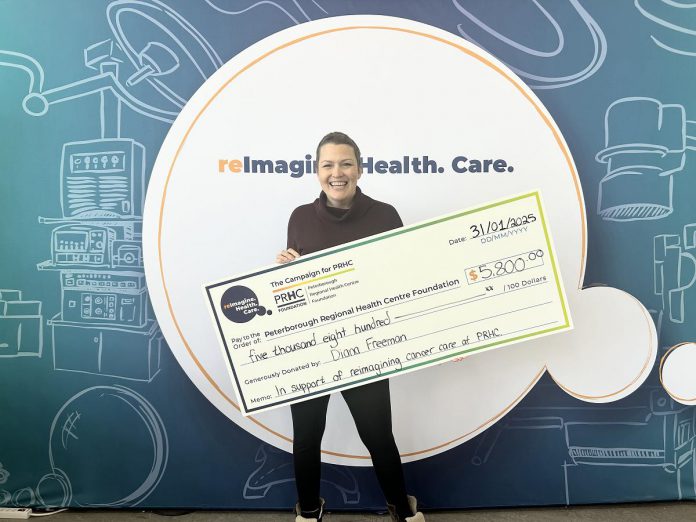
For Diana Freeman, one of the most difficult parts of her cancer journey was the loss of hope she endured between the time she received her initial diagnosis and when she knew what her path forward would be.
“The experience you have during this journey really depends on your emotional strength,” she says. “How are you supposed to care for your kids and your family and yourself when you don’t know what your life is going to be like?”
That’s why, as a grateful patient of the Peterborough Regional Health Centre (PRHC), Freeman is sharing the story of her cancer journey and fundraising in support of PRHC Foundation’s $60 million campaign for world-class healthcare close to home.
Through her own fundraising initiatives, Freeman has already raised $5,800 for the PRHC Foundation to help reimagine cancer care at the regional hospital by introducing digital pathology — a cutting-edge technology that is transforming the ability of healthcare professionals to rapidly detect and accurately diagnose cancers and make treatment decisions.
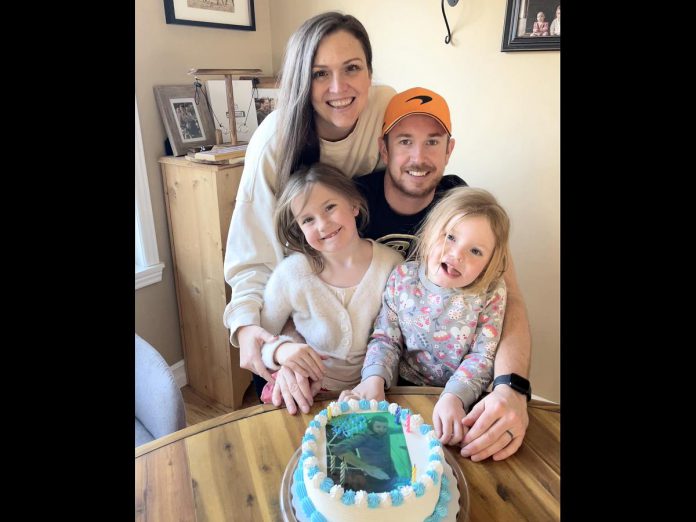
Many people don’t realize that, while government funds a portion of hospital operations, it doesn’t fund hospital equipment or advances in technology like digital pathology.
“Hospitals like PRHC rely on the generosity of donors to support their doctors, nurses, and staff with the tools they need to provide lifesaving care to patients,” says PRHC Foundation president and CEO Lesley Heighway. “When those tools become outdated or new innovations become available, it’s up to us to raise the funds to ensure PRHC can invest in the advanced technology that supports faster, safer, more accurate care for everyone in our region.”
Freeman’s cancer journey began last March when, at 38 years old, she found a lump on her breast during a self-assessment. After sharing the news with her husband David, she went to her family doctor, who arranged for a mammogram and ultrasound at PRHC.
As vice president of client services and a partner at Peterborough advertising agency Outpost379, Freeman occupied her mind by focusing on her work — despite the fact that she was researching cancer patient stories for a client. However, when she received an initial breast cancer diagnosis, her fears were heightened as she did not yet know how aggressive or severe the cancer was.
“I don’t do well when I don’t know the full information, so I don’t get my hopes up and I also don’t start panicking,” she says. “But even just with the heaviness of cancer, you can have all these strategies in place to protect yourself, but that word and the idea of cancer is beyond what any strategy can manage.”
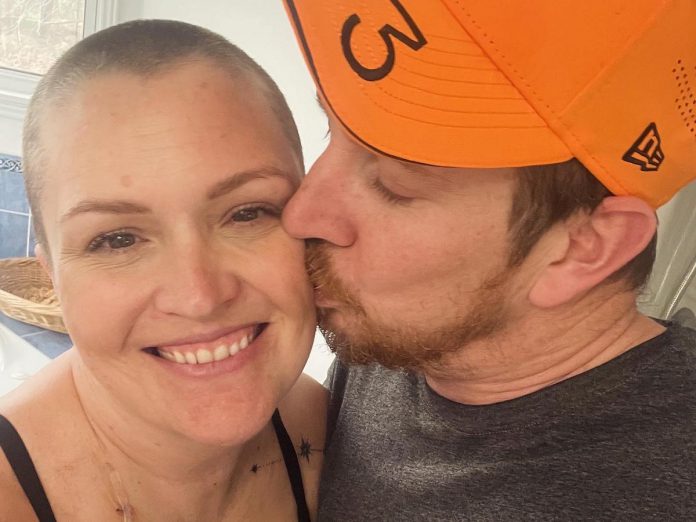
While Freeman and her husband put on a “strong face” when telling her sister and mother about the initial diagnosis that weekend, she found herself unable to send her two young daughters, Olivia and Emily, to school on the following Monday.
“I couldn’t say goodbye to them,” she recalls, admitting that her “wall started to break down” and her emotional strength “started to dwindle.”
“There was nothing there to grab on to in terms of stable hope or the reality of it yet. Without anything to hold on to, there is no stopping those negative thoughts and the idea of not being around anymore.”
When Freeman received a prognosis that her breast cancer was treatable, her hope returned because she knew her path forward and knew she would be supported close to home by the healthcare professionals at PRHC.
“It was great to know the treatment plan, and to have objectives and goals is really helpful,” she says. “But there’s nothing compared to hearing ‘We’ve got you and we have the things in place to give you a better life to get you through this.'”
Freeman underwent a double mastectomy, followed by months of chemotherapy and radiation. Although the physical toll of treatment was significant, as with many cancer patients, it was the delay between the initial cancer diagnosis and the prognosis that created the most anxiety for Freeman.
“The scary part is being left in the dark before you get the prognosis and understanding what hope you can hang on to. Not having that information is the hardest part, even for someone like me who is very strategic but is also an optimistic person.”
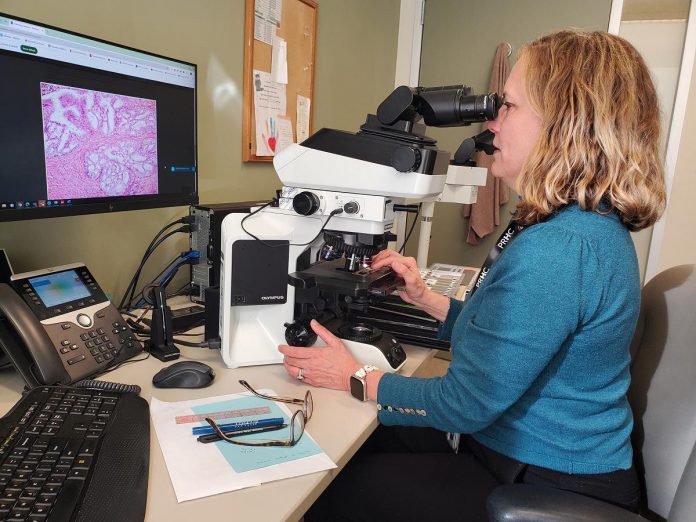
That’s why the PRHC Foundation is committed to bringing digital pathology to the regional hospital’s laboratory as part of its $60 million Campaign for PRHC. The lab manually processes all tissue samples from PRHC and four partner hospitals. For cancer patients, no diagnosis or treatment decision is made without the results from those tests.
With digital pathology, high-resolution scanners will digitize the physical glass slides with precise imaging to improve accuracy, reduce turnaround time, and allow for more efficient collaboration with other specialists.
“Right now, every tissue sample is analyzed using microscopes and further consultation requires couriering the physical samples to specialists in Toronto,” says PRHC pathologist and medical director of laboratory medicine Dr. Katie O’Reilly. “This means that the painful hours and days of not knowing add up for patients.”
“Digital pathology would transform care. It would give cancer patients the answers they desperately need, faster, when every second counts. Without it, patients in our region will be left behind. Every single day we use outdated tools, we miss opportunities to provide faster, potentially lifesaving diagnoses.”
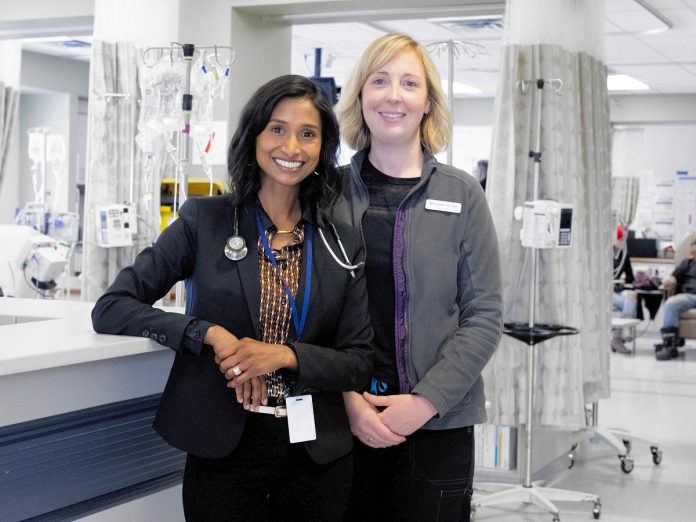
When PRHC pathologists have access to digital pathology, medical oncologists like Dr. Neera Jeyabalan will be able to get diagnoses faster and reduce the time a patient has to wait for their treatment plan — a delay that she labels as “one of the difficulties of the cancer journey.”
“Many patients end up waiting several weeks from when they first discover a lump, for instance, to knowing exactly what type of cancer it is and what treatments are in store for them,” she says. “That waiting and that unknown can be very challenging. If we can shorten that wait time and patients know what the path forward looks like, there is enormous relief even in the face of a devastating diagnosis like cancer.”
Last year, PRHC saw 23,000 cancer patient visits, which is a huge increase compared to the 3,000 to 5,000 patient visits that Dr. Jeyabalan estimates for 2007 when she first started working at PRHC.
“The demand for our services is high, which means that we need to rise to the occasion and make sure that everyone is receiving timely care because cancer is such a life-threatening illness,” she says.
For Freeman, getting care close to home at PRHC meant she did not need to travel outside of the region and could remain with her family while receiving treatment. For example, she was still able to take her daughters to the school bus stop in the mornings. She was also able to rely on a neighbour to take her to medical appointments.
“What close to home means is that now you have a greater circle of support and greater resources — not just from a hospital care perspective, but from your own personal circle,” Freeman says. “It would have been very challenging if we had to go somewhere else. Being able to receive treatment at PRHC was a huge weight off my shoulders.”
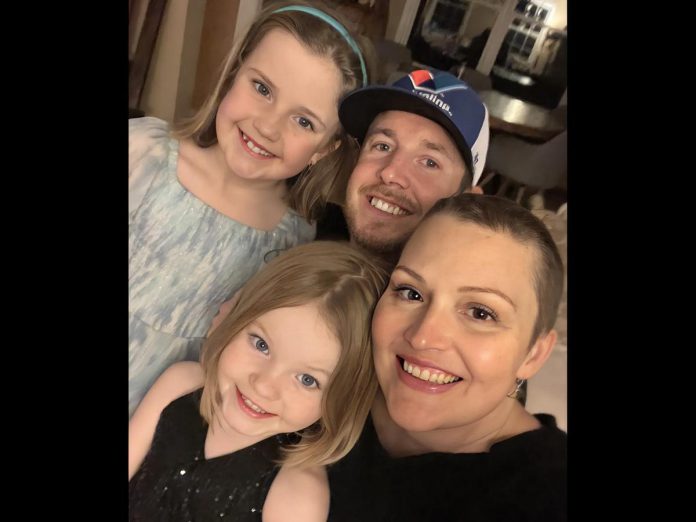
Wanting that same great care close to home to be available to others has inspired Freeman to donate her time and share her story in support of the PRHC Foundation’s campaign. Her hope is that no cancer patient will to have to wait long for their results or a treatment plan.
“A cancer diagnosis is manageable when you have something to hold on to and get through,” she says. “It starts with hope, and it starts with having the right information, the right resources, and the right support to get you through it. When someone else is managing your cancer, you just need to manage being yourself and staying strong.”
As for Heighway, she is grateful to Freeman not only for her generosity — she is both a donor to the PRHC Foundation and a volunteer — but for her willingness to share her cancer journey to raise awareness, funds, and inspiration.
“Her openness has resonated with so many in our community and will undoubtedly inspire others,” Heighway says. “It’s people like Diana and her supporters — our neighbours, colleagues, and friends — who will make it possible to bring digital pathology to PRHC, empowering world-class care close to home.”
To learn more about cancer care at PRHC and to make a donation, visit the PRHC Foundation website at prhcfoundation.ca/what-to-support/areas-of-care/cancer-care/ or call 705-876-5000.
This branded editorial was created in partnership with the Peterborough Regional Health Centre Foundation. If your organization or business is interested in a branded editorial, contact us.

























